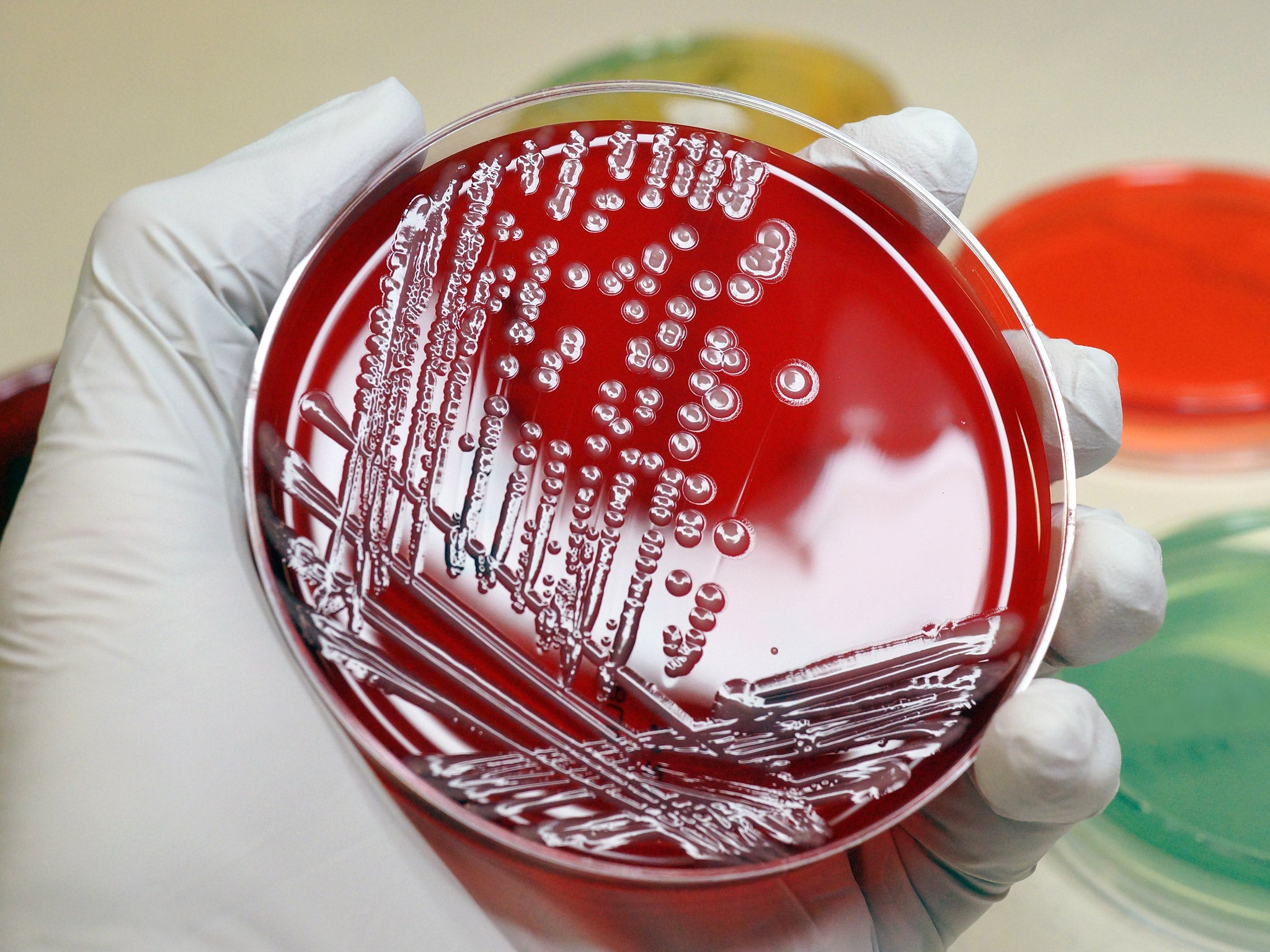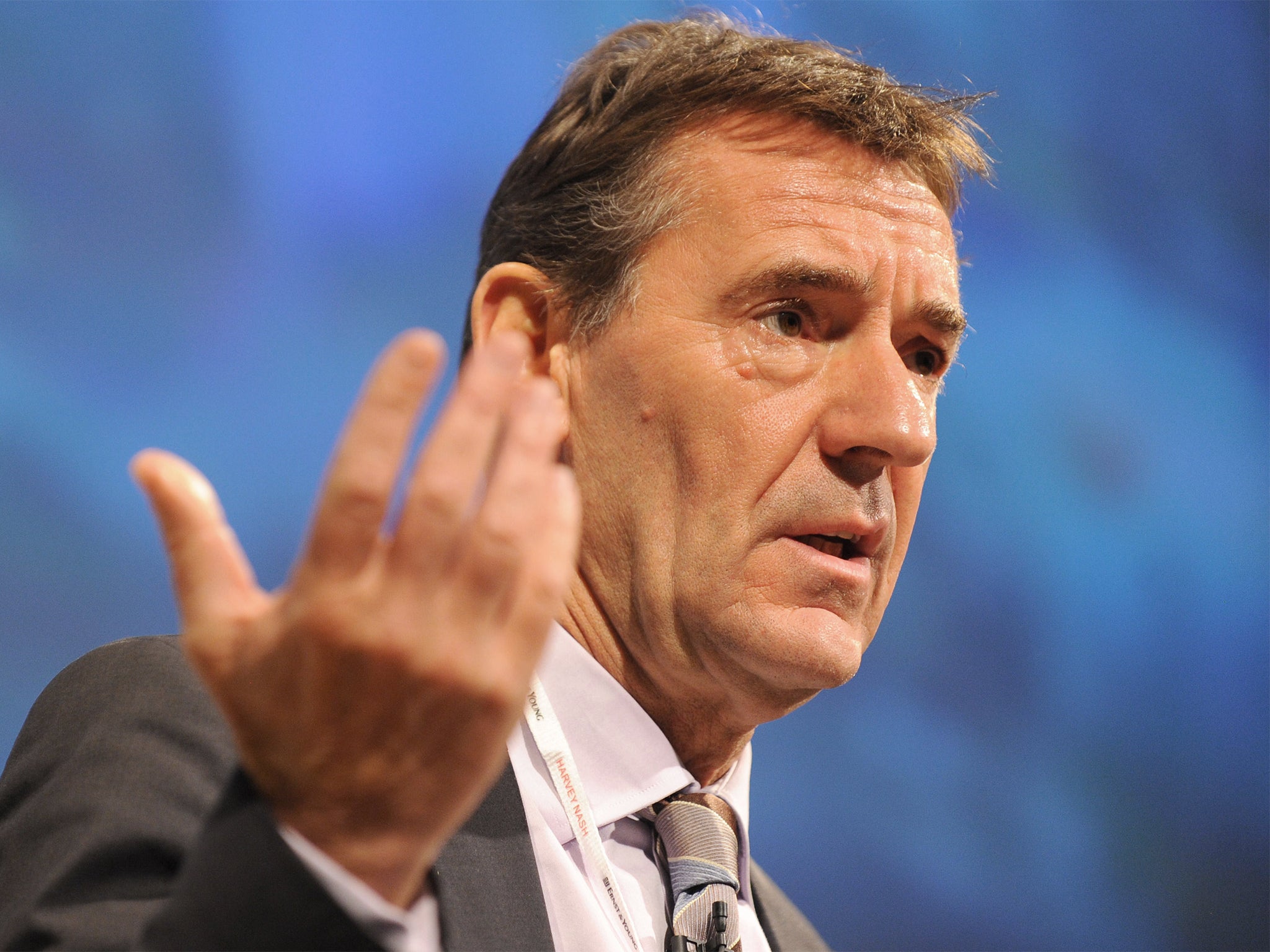Antibiotics will stop working at a 'terrible human cost', major report warns
It will soon be too dangerous to perform caesarean sections, joint replacements and chemotherapy if antibiotics become ineffective

Your support helps us to tell the story
From reproductive rights to climate change to Big Tech, The Independent is on the ground when the story is developing. Whether it's investigating the financials of Elon Musk's pro-Trump PAC or producing our latest documentary, 'The A Word', which shines a light on the American women fighting for reproductive rights, we know how important it is to parse out the facts from the messaging.
At such a critical moment in US history, we need reporters on the ground. Your donation allows us to keep sending journalists to speak to both sides of the story.
The Independent is trusted by Americans across the entire political spectrum. And unlike many other quality news outlets, we choose not to lock Americans out of our reporting and analysis with paywalls. We believe quality journalism should be available to everyone, paid for by those who can afford it.
Your support makes all the difference.Urgent action is needed to control the use of antibiotics before they cease to work, leaving a number of major conditions untreatable and causing “terrible human and economic cost”, a major study has warned.
Resistance to antibiotics is growing at such an alarming rate that they risk losing effectiveness entirely meaning medical procedures such as caesarean sections, joint replacements and chemotherapy could soon become too dangerous to perform. Unless urgent action is taken, drug resistant infections will kill 10 million people a year by 2050, more than cancer kills currently, the report’s authors warn.
Drug resistant infections are thought to be growing due to over-use of medicine such as antibiotics and anti-fungus treatments to treat minor conditions such as the common cold. With over-use, resistance to the drugs builds up meaning some conditions become incurable and so-called ‘superbugs’ such as MRSA develop.
Research has also suggested that antibiotic use in pig farming is common as poor living conditions mean such treatment is necessary to prevent infections spreading between livestock and that this passes down to humans through pork consumption, increasing resistance levels further. In the UK, 45 per cent of all antibiotics are given to livestock.
The report is the result of a two year long review of the use of antibiotics undertaken by economist and former Goldman Sachs Asset Managemet chairman Lord Jim O’Neill. The review was commissioned by the Government amid growing concerns about the use of the medicines in the UK.

It calls for urgent action to halt the growing use of antibiotics: “to avoid the terrible human and economic costs of resistance that the world would otherwise face.” Among his recommendations, Lord O’Neill calls for a public awareness campaign on the harms of antibiotic use, for restrictions to be placed on the use of some critical antibiotics and a tax on the drugs to be introduced for livestock use.
The report estimates that without action now, the cost of the antibiotic failure will be $100 trillion between before 2050.
Lord O’Neill said of the findings: “My review not only makes it clear how big a threat antimicrobial resistance is to the world, with a potential 10 million people dying each year by 2050, but also now sets out a workable blueprint for bold, global action to tackle this challenge. The actions I’m setting out today are ambitious in their scope- but this is a problem which it is well within our grasp to solve if we take action now… to avoid the terrible human and economic costs of resistance that the world will otherwise face.”
Chancellor of the Exchequer George Osborne welcomed the report’s recommendations, saying: “Lord O’Neill’s review provides a stark warning that unless we take global action, antimicrobial resistance will become a greater threat to mankind than cancer currently is. It is not just a threat to health but also to the world economy. Apart from the moral case for action, the economic cost of failing to act is too great to contemplate.”
Dame Sally Davies, chief medical officer for England, who previously warned that the UK is facing an “apocalyptic scenario” over antimicrobial drug use also welcomed the report, describing the recommendations as “challenging.”
Antibiotics act to kill or inhibit the growth of bacteria, stopping infections. They transformed medicine when they were first used early last century and have contributed to the near eradication of a number of serious conditions including tuberculosis and syphilis. An estimated 40 million antibiotics are prescribed in the UK every year, of which the health regulator Nice claims 10 million are unnecessary prescriptions.
Join our commenting forum
Join thought-provoking conversations, follow other Independent readers and see their replies
Comments